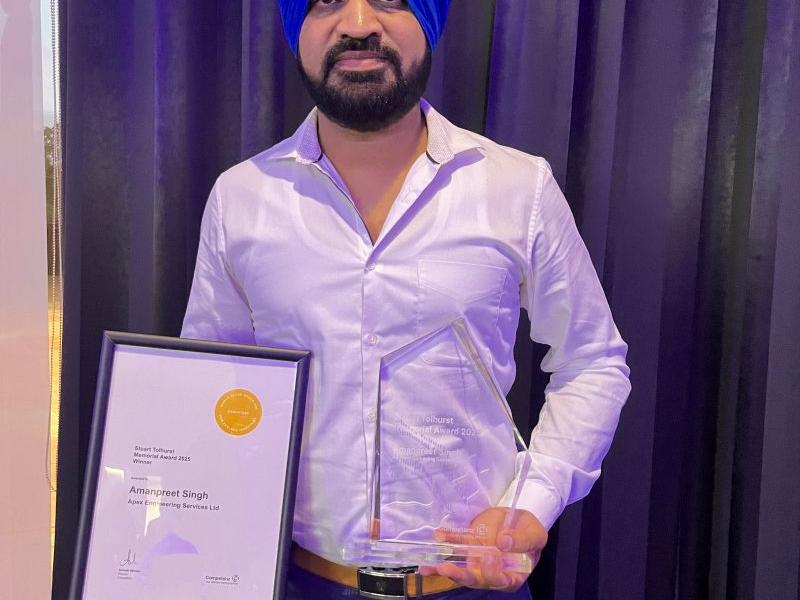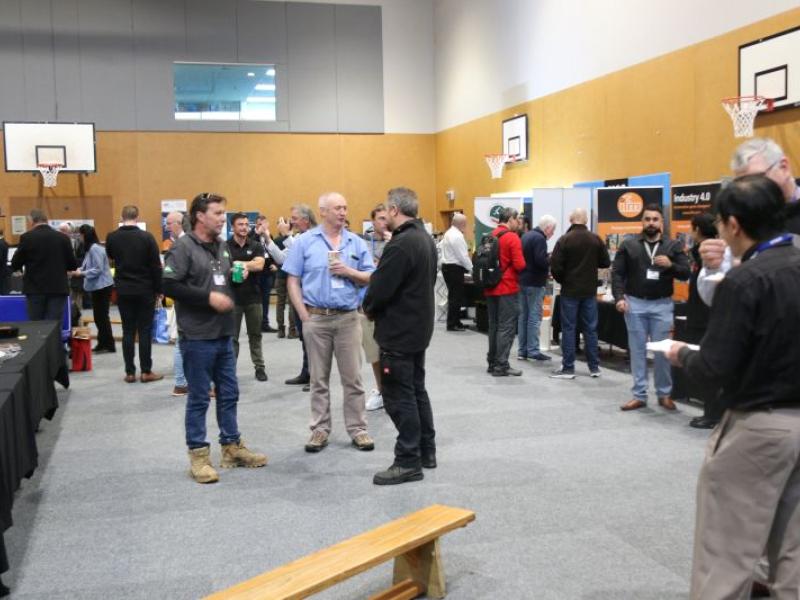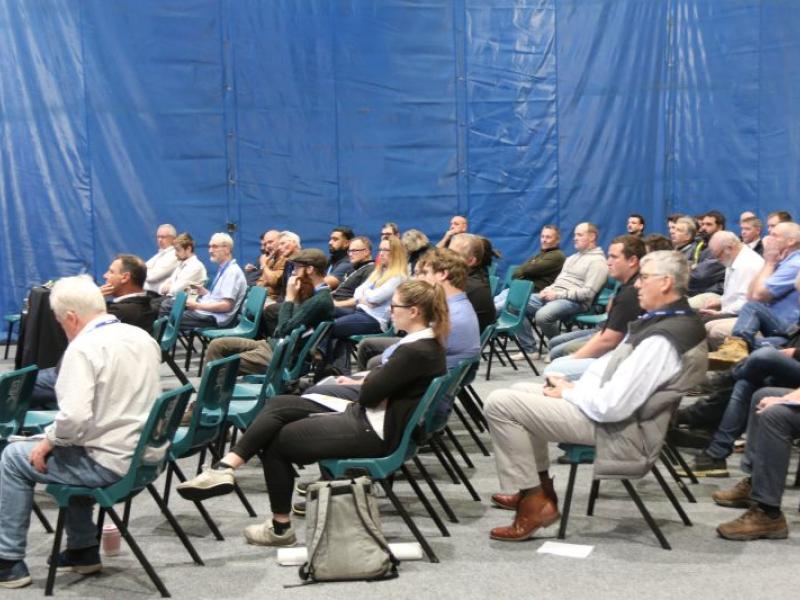Larry Wiechern manages the Maintenance and Reliability Centre at the Manukau Institute of Technology and is its Modern Apprenticeship co-ordinator. He talks to Steve Hart about apprentices and how employers can build a skilled workforce.
From your experience what are the biggest hurdles faced by today’s apprentices?
Finding the right employer willing to take them on. Also many of the young aspiring people leaving school have no idea what they want to do.
They have no idea what trade, or pathway into that trade they should take. For example, in the mechanical engineering trade there are five stands available from CNC, general engineering, fitting, toolmaking and maintenance. While the titles seem clear enough to us, for a young person leaving school, they really have no idea what these trades involve.
When technical classes were removed from intermediate schools, (i.e. woodwork, engineering, sewing and cooking) young people lost their role models, and the taste and feel of what these trades could offer to their futures. Then, young people went on to secondary school with a pretty good idea of the direction they wished to take, and they were able to select suitable subjects to achieve their goals.
There are various organisations that are doing a fantastic job at supplying a good solid foundation for those who are still at school and thinking of a career in engineering. John Kotoisuva’s C-Me Mentoring, (Trades at School), and the Manurewa Schools Academy programme are two of these organisations.
Competenz has a very good website that will give excellent information to those who need assistance and direction: http://www.competenz.org.nz.
Are apprentices receiving enough support from their employers?
Finding employment with a company that has enough skilled tradespeople to impart the knowledge required for these young apprentices to learn can sometimes be a problem.
Many of the companies I deal with do have these skilled staff, but I am hearing that this is not always the case in some other industries.
Competenz and modern apprenticeship co-ordinators are now in a position to also support both the apprentice and the employer, so they both understand their obligations during the training of the apprentice.
It is a concern to me that in the past, block courses were nine weeks a year – this has now been reduced to two to three weeks. While this may seem like a big monetary saving for the employer, it comes at a cost. It is apparent to me that the cost is a huge gap in basic training.
The young tradespeople who come through our doors need more basic training but are on a very tight schedule to achieve the required set of unit standards.
Overall, is the apprentice scheme meeting the needs of apprentices?
Well I think if you spoke to the older tradespeople, you would not be surprised to learn that we had a fantastic apprenticeship system in the past that was second to none. It was recognised internationally, and delivered young people to companies work-ready. Then the cost accountants got involved and changed the whole concept of trade training in New Zealand.
The sad thing is, I now have third year apprentices that can’t work out the area of a circle, have no idea how to calculate what speed to run a machine, cannot transpose simple equations, and have trouble grinding a drill and understanding the importance of a clearance angle. This is not true of all cases, but a large percentage would fall into this category.
When you fast track training you can end up with that result. Learning is often a little repetitive – like hitting a nail, it doesn’t go in after one hit. But as the gaps are identified, we then work on reinforcing their importance.
Hopefully we still have enough experienced engineers within companies to impart all the necessary skills to give them a solid footing for their future.
What will be the biggest issues faced by today’s apprentices when they qualify?
Finance is tight so it will be up to the young tradespeople to source suitable training that is going to keep them up with current trends within their chosen trade. They also need the confidence to approach their employer for the support they require. These extra skills will ensure them a positive future.
With regard ongoing training for established professionals, are companies keeping their staff up to speed with new techniques and new ways of working?
Well in my opinion, attitude is quite critical. Employers take a huge risk setting up their business and they realise (the progressive ones that is) that they are only as strong as the staff they employ. So I believe companies are well aware that if they want to stay competitive, they need a positive, well-educated workforce.
In life there are always going to be those people who are happy to stay where they are. This just provides opportunities for those ones who want to push the boundaries. Moving out of your comfort zone can be a challenge, but that’s where you grow as a person and create the skills our industry needs.
What can young people do to help themselves?
For someone who’s thinking of becoming an engineer, they could do no better than to join a pre-apprentice training scheme.
The topics provided give the young trainee an opportunity to better understand all aspects of the trade. It gives them an opportunity to nail home all the basics of the trade.
Competenz can also provide job opportunities to those who apply themselves to the course. Through their ongoing visits to MIT they can see who is going to make a good employee, having achieved the required unit standards and learnt those basic concepts such as, measure twice cut once, turning up on time, and good attendance.
Employees can contact us directly should they require a person with the right interest, skill and attitude.
People such as maintenance evangelist Joel Leonard say firms are finding it hard to hire good maintenance engineers. Is it a forgotten part of the trade?
It is an area that should be very exciting, as it covers so many interesting aspects of engineering. I think the selection of the correct unit standard topics and level of subject matter could do with a big revamp. Again, companies are under a great deal of pressure to keep the plant operating, so the end result is that in-depth training is sacrificed.
You only need to look at the number of bearing failures within our industry to realise there is a tremendous lack of training being covered on this topic alone, without even looking at the other key areas such as, lubrication, alignment, sealing and the ever growing threat of counterfeit products affecting our manufacturing sector.
This trade is supported by exciting technology such as:
Vibration analysis (understanding the language and health of the machine).
Oil analysis (what components are wearing out and the condition of protective seals).
Infrared (non-invasive inspection of electrical and mechanical components).
Ultrasonics (leak detection, electrical inspection and thickness measurement).
Why wouldn’t you want to become involved with this part of our industry?
I believe it comes back to poor marketing and the lack of role models for those thinking about this pathway.
We have some fantastic role models who we could tap into to inspire young people thinking of moving into a trade, but we are not tapping into that wealth of talent that could be available if managed in the correct manner.






